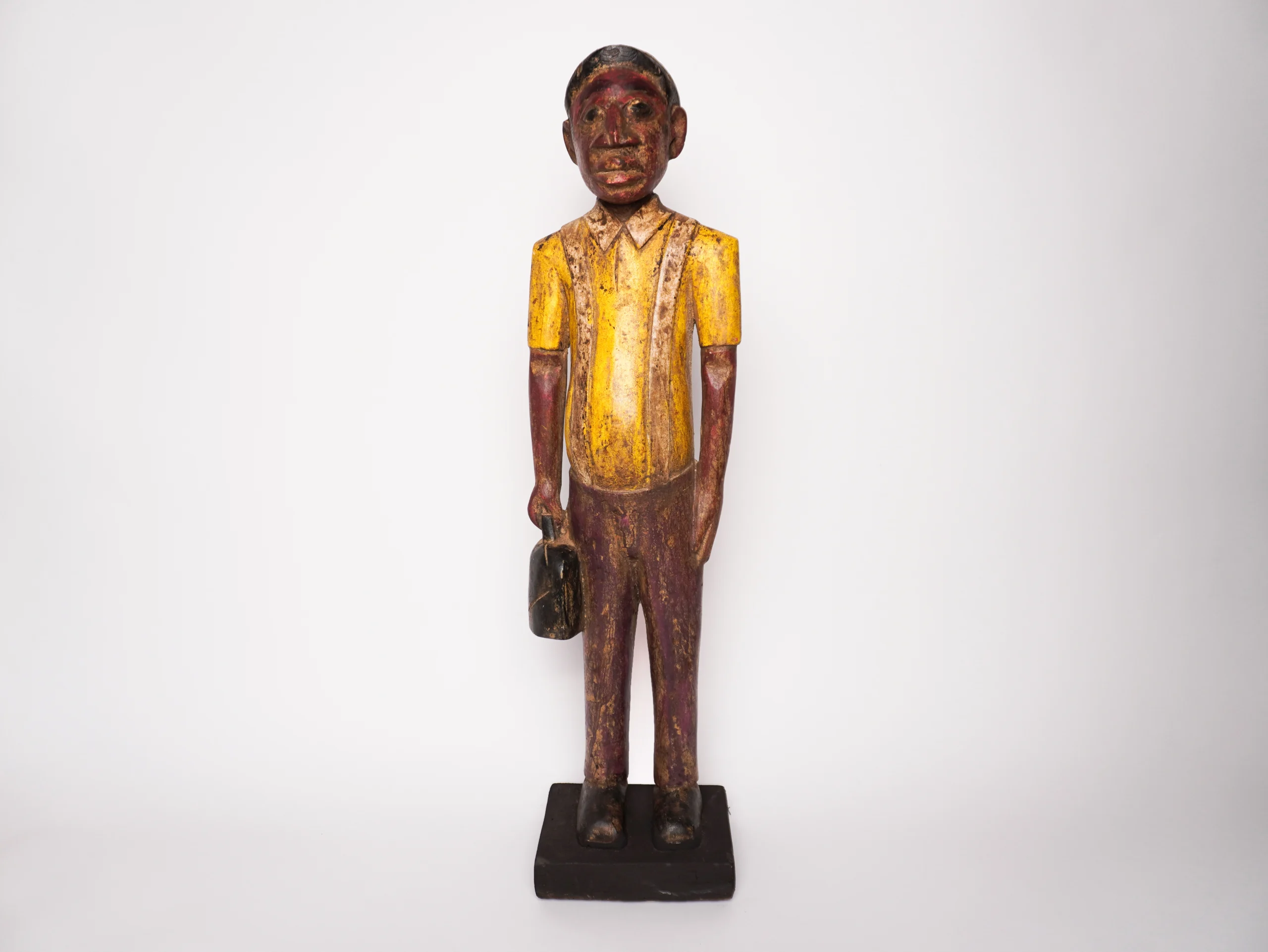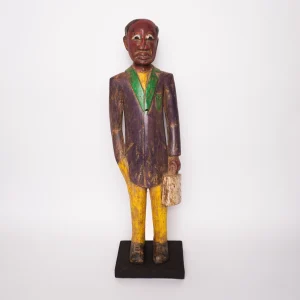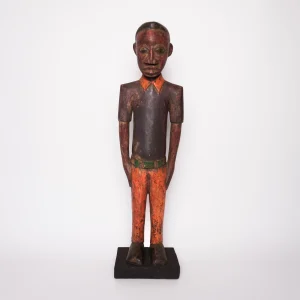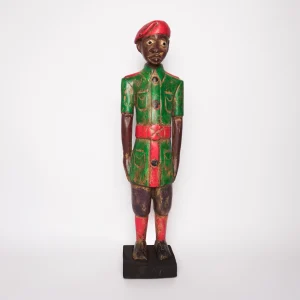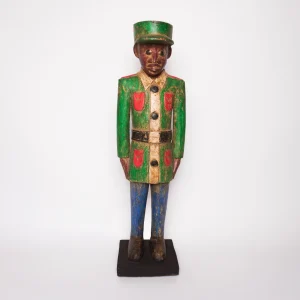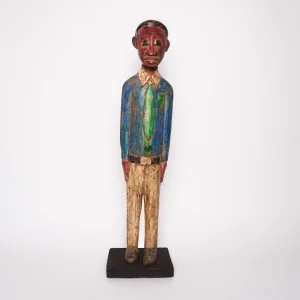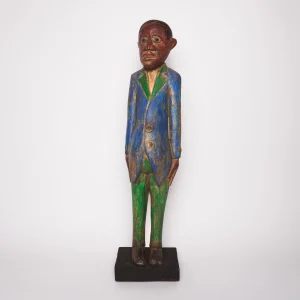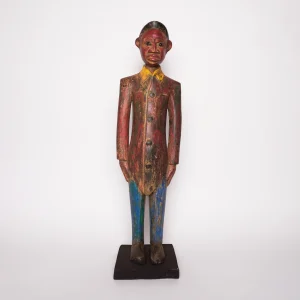Carved Wooden Colon – A Cultural Fusion of Art and Colonial History Carved wooden colons, also known as “colon statues,” are distinctive anthropomorphic sculptures that originated in West Africa—especially in the Ivory Coast—during the colonial era. These figures are typically handcrafted from wood and brightly painted, portraying Europeans such as colonial officers, missionaries, or civil servants. They are notable for their unique blend of traditional African carving styles and European themes, making them powerful symbols of cultural intersection. Defining Characteristics: Depiction of Europeans: Colon statues often feature European subjects dressed in formal colonial attire, such as military uniforms, suits, hats, or clerical garments. These figures are portrayed with exaggerated or stylized features, highlighting the contrast between cultures. Stylistic Fusion: The artistry combines African sculptural techniques—like bold shapes, simplified forms, and symbolic proportions—with European details in clothing and posture, creating a visually striking hybrid style. Materials and Finish: Typically carved from hardwood and finished with vibrant, glossy paint, the figures are made to be both eye-catching and durable. Their colorful appearance adds a whimsical or satirical tone to the serious historical themes they represent. Cultural and Historical Significance: Commentary on Colonialism: These statues are seen by many scholars and collectors as a form of visual commentary or satire. They reflect how African artists perceived and interpreted colonial figures, sometimes idealizing, sometimes mocking, or simply documenting them. Symbol of Cultural Hybridity: Colon statues embody the blending of African traditions and foreign influences. They illustrate how African societies adapted to and represented the presence of European powers. Context of Use: While some colon figures were created as functional art for local rituals or as household items, many were produced for trade and tourism. Their popularity grew as collectible souvenirs that offered a uniquely African perspective on colonial presence. Legacy and Art Market: Today, carved wooden colons are appreciated not only for their historical significance but also for their artistic and cultural value. They are featured in art galleries, museums, and private collections around the world, celebrated as enduring artifacts of colonial-era West Africa and as bold expressions of resistance, adaptation, and artistic innovation.
Related products
- USD: $481.93
- USD: $481.93
- USD: $481.93
- USD: $481.93
- USD: $481.93
- USD: $481.93
- USD: $481.93
- USD: $481.93

